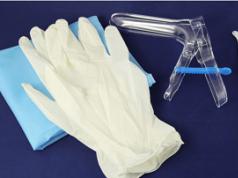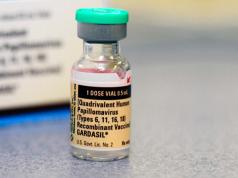Sooner or later, many people face such a problem as bad breath. This unpleasant sensation gives people great discomfort; a person begins to feel embarrassed about it, especially when communicating with other people. At the same time, a person’s self-esteem and self-confidence decreases.
Therefore, in our article today we will try to find out the causes of the smell and try to eliminate them.
Bad breath is the very first symptom of certain diseases, and it may also be associated with impaired functioning pathogenic microbes. Experts also call this phenomenon “halitosis.” Let's find out the reasons for its occurrence in adults.
Most often, the person himself does not even notice bad smell, at the same time as the doctor or loved ones notice him. Therefore, we can recommend you a self-diagnosis method:
80% of the causes of such odors are directly related to poor oral hygiene or dental diseases.
10% are associated with diseases internal systems and organs - gastrointestinal tract, kidneys, liver and internal organs,
Hormonal imbalances, organs respiratory system, oncological and autoimmune diseases, metabolic disorders.
The remaining 10% are associated with ENT diseases.
The smell from the oral cavity can only periodically bother a person, occurring in the morning after eating or in the morning on an empty stomach, or, on the contrary, it can be constant, independent of food intake. Those people who suffer from this unpleasant symptom characterize it in their own way - a bad odor, a sweetish, sour or putrid odor from the mouth.
Experts divide the causes of bad breath into two branches: problems of the ENT organs, cavities and problems with the gastrointestinal tract. The main cause of such odors is improper or poor personal oral hygiene. Long-term plaque on the teeth, periodontal disease, caries, loosely fitting bridges or crowns, as well as purulent sore throat.
The causes of bad breath may be the result of bacterial waste products that accumulate in the oral cavity. Therefore, this smell occurs due to improper oral hygiene. Hygienic procedures that are carried out in a timely manner will help get rid of this unpleasant phenomenon forever. If soon after the end hygiene procedures, this means that such procedures will not be enough, which means you need to seek help from a specialist.
Possible causes should be sought in diseases of the oral cavity - periodontal disease, caries, pulpitis, periodontitis, stomatitis, gingitis, tartar. These oral problems most often arise due to the activity of bacteria, which, in addition to causing unpleasant diseases, also cause bad smell.
All food residues accumulate in carious cavities, periodontal pockets contribute to the emergence unpleasant odor and further complicate the resulting disease. For example, a disease such as gangrenous pulpitis is characterized by an unpleasant odor from the mouth, by which this disease can be identified.
Dry mouth is another visible reason unpleasant smell. The saliva in every person's mouth is itself a natural cleanser. Each time you swallow saliva, large amounts of bacteria are washed into the body. When salivation decreases, the process of cleaning the oral cavity worsens.
The causes of a strong odor in the mouth caused by decreased saliva secretion can occur as a result of impaired functioning, they can also be caused by anemia, diabetes, frequent neuroses, gastritis, taking sleeping pills and drugs that sedate nervous system. Decreased salivary secretion may result from such bad habits, like mouth breathing, drinking alcohol and smoking.
Experts call this phenomenon “xerostomia.” Due to dry mouth at night, which usually occurs at night in all people, it can cause a bad smell in the morning. Because salivation decreases during sleep. The same thing can happen during a long conversation, since we begin to inhale air only through the mouth. As a result, the mouth begins to “dry out”. If this phenomenon eventually develops into chronic form, then this symptom indicates the disease xerostomia.
Among the causes of such an unpleasant phenomenon, internal diseases are in third place.
These may include the following:
Infectious diseases of the respiratory tract;
Kidney (renal failure);
Nasopharynx (rhinitis, tonsillitis, sinusitis, pharyngitis, sore throat);
Whatever the reasons putrid smell did not cause this phenomenon, the source of their occurrence is precisely bacteria. They are always in our mouth, because they create a certain microflora there. In medicine, such bacteria are called anaerobic, which develop even in an oxygen-free environment, such as plaque that occurs on teeth.
The smell of acetone from the mouth of an adult and a child is the first sign of a serious illness that occurs in the human body. The smell of acetone from the mouth does not indicate the presence of polyps in the nose or poor oral hygiene. The causes of the smell of acetone from the mouth in adults and children have virtually no differences.
The most common cause of this odor is a disease such as diabetes. As a result of this disease, serious changes occur in the patient's body due to a decrease in insulin levels, which is very important for the normal breakdown of glucose.
Acetone is a breakdown product of fats and proteins in the body, so the smell of acetone can appear in any form of diabetes. In severe cases of diabetes, the urine and skin of the patient also smells of acetone. Both adults and children can suffer from these symptoms of diabetes.
Acetone can be produced in the body due to the consumption of fatty and protein foods and low carbohydrate content of foods. All kinds of diets and fasting during certain treatment of diseases can also cause such bad breath.
Treatment of acetone bad breath
Treatment of the smell of acetone from the mouth should not be done on your own, since the causes of this phenomenon lie in severe processes that occur in the body. To find out the exact reason for this, you need to undergo all the necessary examinations for the presence or absence of infections, diabetes, kidney or liver failure.
If metabolic processes are disrupted, you need to drink a lot of liquid to remove all waste products from the body.
In such cases, it is better to eat:
Cranberry or lingonberry juice;
Mineral water;
Natural juices;
Your mouth may smell not only of feces, but also of other odors, such as acid and ammonia. If you also hear such odors from yourself, do not panic about this.
The reason for the smell of feces from the mouth can be the simplest - digestion of food with a strong smell of onion or garlic. If you add a dairy dessert or alcoholic drinks to this, the whole bouquet of odors will be concentrated in the oral cavity.
Most often, bad breath can occur due to neuroses and intestinal obstruction, as well as dysbacteriosis. This smell is a very alarming sign, which indicates that the removal of toxins from the body has greatly slowed down. As a result, the body begins to become severely poisoned by its own waste.
The smell will not disappear so quickly; along with treatment and examinations by specialists, it is necessary to carry out hygiene and certain procedures that will help avoid the smell of feces from the mouth.
Brush your tongue in the mornings and evenings;
Brush your teeth twice a day not only with toothpaste, but also with dental floss;
For a quick effect, you can drink a cup of strong tea and then rinse your mouth. You can also eat fresh carrots, apples or celery root;
Rinse your mouth after every meal. Mouth rinses can be prepared at home from herbal infusions (sage, mint, oak bark, chamomile).
How to get rid of the causes of bad breath
Since the main source of bad breath is bacteria, it is they that need to be fought. One of the main ways to combat this phenomenon is daily oral hygiene. It is necessary to brush your teeth in the mornings and evenings. After eating, you can use a special flux to remove food particles between your teeth.
From your diet you need to eliminate those foods that cause bad breath: fresh onions, peppers, garlic, smoked meats, etc. These foods contain cysteine, which becomes hydrogen sulfide as a result of bacterial activity.
Since bad breath can be caused by inflammation of the oral cavity and dental diseases, it is necessary to make an appointment with the dentist in a timely manner. At the appointment, the dentist must carefully examine the teeth, periodontium and mucous membrane, as well as the ducts salivary glands. If there is such a need, a specialist will sanitize the oral cavity, remove plaque and tartar from the teeth, eliminate foci of infection and treat caries. In some cases, it is necessary to replace dentures with new ones that fully comply with dental standards.
Sometimes a strong odor in the mouth is the first sign of a certain disease in the human body. Bad breath can also occur due to disruption of the gastrointestinal tract, bronchial asthma, liver and kidney failure. In this case, the whole body is diagnosed and the identified disease is treated accordingly.
Some oral odors require immediate attention. For example, the cause of gastric odor from the mouth is a serious disruption of the gastrointestinal tract and duodenum. Therefore, you need to immediately seek help from a therapist, who will conduct all the necessary examinations and prescribe proper treatment.
Use of medications
Nowadays there are medicines that can help get rid of bad odor in the mouth: special dental gels, toothpastes, lozenges, etc. But before using such products, you must consult with specialists in advance.
ethnoscience
To combat unpleasant odors, medications will also help. plant origin– echinacea, chamomile, propolis, alfalfa, a decoction of wormwood and tansy, an infusion made from fresh dill. Essential oils also help reduce bad breath for several hours (oil tea tree, mint, sage, cloves, grapefruit seed extract).
With a problem putrid taste Not only adults, but also children deal with mouth problems. Quite often this unpleasant symptom indicates that there is some kind of pathological process, although bad breath can also be caused by dental problems. In any case, you should definitely consult a specialist about this.
Putrid breath makes a person feel discomfort when communicating with other people, leads to embarrassment and decreased self-esteem. No amount of refreshing agents will help hide it for a long time. In medicine, the problem of bad breath is called halitosis. Its causes and methods of treatment are discussed further in the article.
Why does my mouth taste like pus?
If you do not take good care of your oral cavity, this will lead to the accumulation of plaque, which will create favorable conditions for the development of bacteria. The result of their life activity is hydrogen sulfide. It is because of this that an unpleasant odor appears in the mouth.
At night, when a person sleeps, less saliva is produced in the mouth, which allows bacteria to be much more active than during the day. That is why in the morning, adults and children may feel the taste of pus in their mouths. To cope with this problem you need to follow hygiene standards, brush your teeth and tongue, rinse oral cavity.
It happens that the smell of rot in the mouth manifests itself as a symptom of some disease. In this case, without a specialist’s diagnosis, it is very difficult to determine the cause. This is why it is required comprehensive examination. Thus, putrefactive-necrotic phlegmon of the floor of the oral cavity is one of the reasons why the smell of rot appears in the mouth. In this disease, the tissue cells of the oral cavity are inflamed and have pockets of pus. Phlegmon of the floor of the mouth appears due to periodontitis, dental cysts or periodontitis.
From huge amount The reasons for the unpleasant “aroma” from the mouth can be identified as follows:

Associated symptoms
Halitosis is usually accompanied by certain symptoms that make it possible to understand what exactly caused it. bad taste pus in the mouth. These include:
- increased body temperature;
- light coating on the tongue;
- toothache;
- stuffy nose;
- inflammation or bleeding of the gums;
- cough;
- stool disorder;
- painful sensations in the stomach area.
To quickly get rid of putrid breath, you need to seek help from a specific specialist:
- If your tooth hurts, your gums are inflamed or bleeding, then this is a clear reason to go to the dentist.
- The otolaryngologist expects those who have associated symptoms halitosis are wheezing, cough, sore throat, stuffy nose.
- If constipation or diarrhea occurs, stomach pain or discomfort in the intestinal area, then this is a clear reason to visit a gastroenterologist. The main advice: regardless of the causes and symptoms of halitosis, you should not postpone your visit to the doctor “until later”.
Methods for diagnosing the disease
To understand why the smell of pus emanates from the mouth, it is necessary to undergo a series of diagnostic examinations from different specialists. There are the following ways to detect halitosis:
Treatment of bad breath
 After a comprehensive diagnostic examination Your doctor will be able to find out the cause of your bad breath. Then he will prescribe therapy to the patient, which should not only eliminate the symptoms of halitosis, but also affect the cause of its occurrence.
After a comprehensive diagnostic examination Your doctor will be able to find out the cause of your bad breath. Then he will prescribe therapy to the patient, which should not only eliminate the symptoms of halitosis, but also affect the cause of its occurrence.
Curing bad breath involves sanitizing foci of infection and treating the underlying ailment. Bed rest and drinking plenty of fluids will ease the patient's condition.
What medications can help?
It will definitely take time to cure bad breath. Many patients do not want to wait and go to the pharmacy for the following medications:
- Hydrogen peroxide helps get rid of germs and relieve various types of inflammation;
- Chlorhexidine fights the proliferation of pathogenic bacteria and increases the effectiveness of antibiotics;
- Triclosan is used in dentistry as a therapeutic and prophylactic agent that fights fungi and harmful microflora;
- antiseptics and decoctions medicinal herbs- echinacea, chamomile, calendula.
How to get rid of the taste of pus in the mouth using home methods?
For treatment to be effective, it must eliminate primary causes halitosis. Most the right way treatment is a trip to the dentist who will help get rid of bad breath with the help of medications.
This can also be done using traditional methods. They are also effective in combating this problem. Below are some of them:
- periodically eat one leaf of peppermint or fragrant cornflower;
- rinse your mouth with decoctions of sage, lemon balm or lemongrass;
- ginger or celery root will refresh the mouth due to its astringency (celery tincture: finely grate 2 tablespoons of the root and pour 250 ml of vodka, leave for 2 weeks on the refrigerator door, rinse three times a day for two weeks, after diluting with water 1 :10);
- rinse your mouth vegetable oils with the addition of a small amount of sea or iodized salt (at least 15 minutes);
- Chew coffee beans for 3-4 minutes or eat a quarter spoon of instant coffee;
- rinse your mouth with decoctions of dill, oak bark, chamomile, propolis, yarrow;
- use chewing gum and refreshing sprays.
When should you go to the doctor?
Don't put off going to the doctor until tomorrow if you or your child have a problem in your mouth.
Bad breath – occurs in the background wide range diseases of the gastrointestinal tract and digestion, problems with teeth and oral cavity. The smell of rot is often observed, which indicates the presence of diseases. There are many reasons why this unpleasant symptom occurs, but the very first factor is that many bacteria live in the human mouth, leaving particles of their vital activity that enter the human body with food. Microorganisms lead not only to a foul odor, but also to the destruction of enamel, which is the cause of tooth decay, as well as the appearance of inflammatory processes in the gums.
Bad breath can be detected during a conversation with another person, when exhaling into your palms, folded into a handful. Dental floss is often used to identify the odor - if an unpleasant odor is felt when passing it between the teeth, you should immediately contact your dentist, as this can lead to tooth decay. Some people use a teaspoon for this purpose, remove the coating from the tongue and sniff. More easy way independently determine the quality of the odor from the oral cavity - lick your wrist, let the skin dry and smell the area. You can buy it in pharmacies special tests, which determine the freshness of breath.
Bad breath in itself does not have consequences for human health or life. The only thing that the victim may feel is discomfort when communicating in big company of people. Complications arise only from concomitant disease if it caused a bad odor. Treatment of such an uncomfortable symptom is individual for each patient, both adults and children (developed based on diagnosis and factors that contributed to its expression).
Etiology
Bad breath and the causes of its occurrence primarily lie in the proliferation of microorganisms. But besides them, there are quite a lot of reasons why your breath smells:
Often, bad breath occurs after sleep - it is easily eliminated by morning hygiene and does not appear throughout the day. If the smell appears during the day, you should consult a doctor.
There are several characteristic factors why a child has a foul odor:
- reluctance or complete refusal to perform oral hygiene;
- retention of small particles of food between teeth, which leads to rotting and proliferation of microorganisms;
- eating a lot of sweets causes an increase in the number of bacteria;
- foreign bodies in the child’s nasopharynx;
- hereditary diseases. For example, if one of the parents had metabolic problems, it is likely that the child will develop a bad odor;
- inflammation of the adenoids or tonsils;
- Constant breathing through the mouth causes unhindered entry of bacteria into the mouth, drying out of the mucous membrane, and, as a result, injury to it.
These reasons indicate that bad breath does not always occur against the background of diseases of the oral cavity, but can manifest itself in a completely healthy adult or child.

Varieties
In the medical field, there are several forms of fetid odor:
- true - people around them feel that the person smells unpleasant. In turn, it can be physiological - not related to the food consumed, and pathological - appearing against the background of diseases of the oral cavity;
- pseudo-true - the smell is unnoticeable to strangers, since it is not intense, but the person is nervous, knowing that he is the carrier of such an unpleasant symptom;
- false - characterized by an imaginary bad breath, which is why a person is constantly irritated, although in fact he does not have such an illness. If the patient has this particular form, after examination by a dentist, the patient is referred for treatment to.
Symptoms
Signs of bad breath that an adult can independently determine in himself or his child:
- the appearance of a yellow or gray coating on the tongue;
- the appearance of spherical neoplasms on the tonsils;
- dryness in the mouth, which leads to burning;
- a feeling of unpleasant taste when drinking drinks, as well as when rinsing your mouth with plain water;
- a feeling of sour, bitter or metallic taste;
- abnormal behavior of the interlocutor who offers mint candy or chewing gum, or by hints, for example, covering the nose, increasing distance during a conversation. And also for additional tips on the best way to get rid of bad breath. Direct hints that your breath smells rotten.
Other signs why a stench may appear in an adult and a child:
- severe pain in the teeth and their looseness;
- discomfort in the throat;
- feeling of a foreign object;
- difficulty breathing air through the nose;
- belching;
- constant dry mouth;
- strong thirst;
- bleeding from the gums;
- hemoptysis.
Diagnostics
You can only recognize bad breath on your own, but only a specialist can determine the causes of its occurrence using:
- collection complete information about when the fetid odor was first noticed and why possible reasons it happened;
- viewing the patient's clinical chart - to identify chronic disorders or diseases of the oral cavity;
- The dentist's assessment of the degree of unpleasant odor on a scale of zero to five. It is very important for a few days before the analysis for the patient to refrain from eating spicy foods, using cosmetics that have a pungent odor, as well as rinsing the mouth with special rinses or fresheners. If this is not done, the results will be erroneous and the test will have to be repeated;
- determining the concentration of sulfur in the air exhaled by the patient - this is done using a halimeter;
- direct examination by a specialist of the problem area;
- radiography of the respiratory system;
- additional consultations from such specialists as, and;
- carrying out a fecal analysis - this should be done to identify helminths.
After receiving all the test results, the doctor prescribes individual ways for each patient to get rid of bad breath.
Treatment
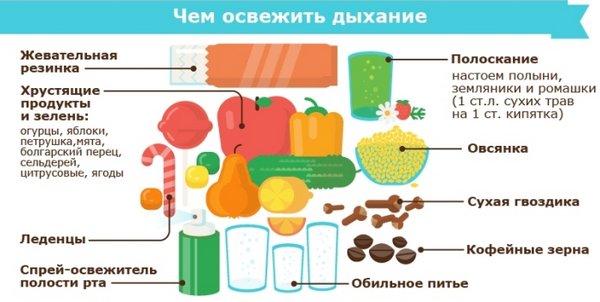
After identifying the factors why the unpleasant odor appeared, he prescribes treatment methods. Treatment for bad odor involves preventing bacteria from entering and growing. To do this you need to do:
- everything possible for proper oral care. It is necessary to brush your teeth at least twice a day, and for a child, it is best to brush your teeth every time after eating;
- timely treatment of diseases of the oral cavity and teeth;
- visit the dentist regularly;
- follow a diet that excludes the consumption of large amounts of food containing protein, and for the child, limit sweets;
- therapy chronic diseases organs involved in breathing;
- normalize the inhalation of air through the nose as quickly as possible, it is especially important to do this for children, since the body is not yet strong, which means that the spread of bacteria will take place much faster;
- completely give up alcohol and tobacco;
- monitor air humidification in living or working areas;
- treatment of chronic gastrointestinal disorders;
- eliminate dryness of the oral mucosa in a timely manner, if possible, drink as much fluid as possible and give it to the child in a timely manner;
- rinse your mouth only with the product prescribed by your doctor;
- carry out stimulation increased secretion saliva.
Besides this, there are several folk remedies treatment, how to get rid of bad breath. Such recipes consist of:
- a mixture of mint and lemon juice or vinegar;
- medicinal chamomile tea;
- infusion of bitter wormwood;
- vegetable oil, use as a rinse aid;
- herbs St. John's wort and sorrel.
In addition, you should always have roasted seeds or dry cloves with you. They will help you quickly get rid of bad smell.
“Bad breath” is observed in diseases:
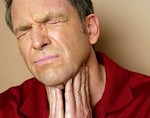
Sore throat is an illness of an infectious nature, the progression of which results in acute inflammation of the palatine tonsils and other lymphoid formations of the pharynx. The following pathogenic microorganisms can provoke the development of pathology: viruses, bacteria and fungi. In the medical literature, this condition is also called acute tonsillitis. It is worth noting that this is a fairly common disease that can begin to progress in both adults and children.

About such a pathology as antral gastritis they say in cases where inflammation of the gastric mucosa is caused by the presence in the human body of a bacterial agent such as Helicobacter pylori. This type of stomach disease can long time proceed asymptomatically, but when the process reaches a certain stage, symptoms of inflammatory damage to the organ arise, which causes a lot of trouble for the person, forcing him to seek medical help.

Anuria is a condition in which urine does not flow into the bladder, and, as a result, does not stand out from it. In this condition, the amount of urine emitted per day is reduced to fifty milliliters. Given this clinical symptom There is not only a lack of fluid in the bladder, but also the urge to empty.

Aspergillosis is fungal disease, which is caused by the pathological influence of the mold fungi Aspergillus. This pathology has no restrictions regarding gender and age category, which is why it can be diagnosed even in a child.

Aspiration pneumonia is an inflammation in the lung tissues that develops as a result of entry into the organ. foreign bodies or substances. Aspiration can be carried out both by mechanical objects from the outside and by body fluids, for example, stomach contents or amniotic fluid, which is why aspiration pneumonia develops in newborns. When describing this pathology, one should distinguish between aspiration pneumonia in adults and children, since the causes and mechanisms harmful effects in these cases are different.

Autoimmune gastritis is a pathological process of unknown etiology, in which the body begins to produce cells that destroy stomach tissue, resulting in an inflammatory process. According to statistics, this form of gastritis is diagnosed extremely rarely - no more than 10% of general cases gastritis diseases. There are no restrictions regarding age and gender.

Aphthous stomatitis– a type of ordinary inflammation of the oral mucosa, accompanied by the occurrence of aphthae, i.e. small ulcers white with a red border, which have the shape of a circle or oval (can occur singly or appear in large numbers). The main symptoms of the disease are unpleasant sensations in the form of pain and burning, aggravated by eating. The neoplasms heal in about ten days, leaving no traces behind; only certain types of illness can cause scars.
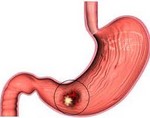
Duodenal bulbitis is an inflammatory process of the mucous membrane of the organ, namely its bulbar section. This is due to the fact that the onion of this body stomach contents enter and Helicobacter infection occurs. The main symptoms of the disease are pain at the site of intestinal projection, the intensity of which varies. If such inflammation is not treated in a timely manner, complications may arise that are harmful to human health and can only be eliminated with the help of surgical medical intervention.

Gastritis with high acidity (syn. hyperacid gastritis) - is expressed in the development of dystrophic inflammatory process, with localization in the gastric mucosa, which leads to cell atrophy and improper functioning of this organ. Most often, the occurrence of pathology is caused by the influence of pathogenic bacteria, in particular Helicobacter pylori. However, it is also worth highlighting poor nutrition and other ailments of the digestive system as provoking factors.

Gastritis in children is a gastroenterological disease with acute or chronic course, which affects the superficial layer of the stomach and leads to pathological changes mucous membrane. It should be noted that this disease is fraught with the development of serious complications and often leads to gastric ulcers.
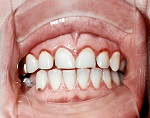
Gingivitis is an inflammatory process concentrated in the gum area and accompanied by redness and systematic bleeding. Gingivitis, the symptoms of which are quite common, can be chronic or recurrent; in addition, the course of the disease can also be acute.

Gingivitis in children is an inflammatory lesion of the marginal zone of the gum, in direct contact with the neck of the tooth and the gingival papillae located between the dental units. In the vast majority of cases, this periodontal pathology is diagnosed in the age category over 4 years.
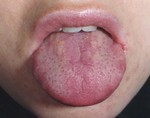
Glossitis is an acute inflammatory disease language. The pathological process is caused by fungal organisms or viral microflora. In most cases, glossitis is a background disease of stomatitis or occurs simultaneously with it. There are no restrictions regarding gender and age. The disease affects both adults and children equally.
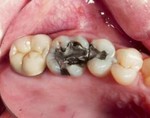
Deep caries– a common dental disease that develops as a result of demineralization of enamel caused by the activity of pathogenic microorganisms. This pathological process affects all hard structures of the teeth. About 90% of people experience the disease. It can affect patients from various age categories.

It is no secret that in the body of every person microorganisms are involved in various processes, including the digestion of food. Dysbacteriosis is a disease in which the ratio and composition of microorganisms inhabiting the intestines is disrupted. This can lead to serious problems with the functioning of the stomach and intestines.

Intestinal dysbiosis in children is a pathological process in which there is a disturbance in the composition of the intestinal microflora. Increasing total opportunistic microorganisms and at the same time beneficial bacteria gradually die. Imbalance provokes the appearance of various gastrointestinal disorders, decreased reactivity of the body, progression of anemia, as well as other serious pathological conditions. In the medical literature, this disease is also called intestinal dysbiosis.

Intestinal dysbiosis – pathological condition, progressing due to a violation of the ratio normal microflora intestines and pathogenic. As a result, the functioning of everything is significantly disrupted. gastrointestinal tract. Dysbacteriosis most often progresses in infants, since they are more vulnerable to various kinds ailments.

Intestinal dyskinesia is a fairly common disorder in which this organ is not subject to organic damage, but its motor function suffers. The underlying factor in the occurrence of the disease is considered lasting influence stressful situations or nervous overstrain. It is for this reason that gastroenterologists and psychologists treat patients with a similar diagnosis.

Bile stagnation is a rather rare pathological process in which the release of a similar substance or its transportation through the bile ducts slows down or completely stops. In the medical field, this disorder is also known as cholestasis.
Now let’s look at the most common causes of bad breath and determine which of them force you to consult a gastroenterologist and dentist.
Flavorful food
The strong smell of garlic, onions, cabbage and certain spices can seriously spoil the freshness of your breath. For the occurrence of bad breath in in this case the volatiles answer aromatic compounds, remaining in the oral cavity along with food particles or entering the esophagus from the stomach.
You can temporarily resolve the problem using toothbrush, sugar-free chewing gum, or a special mouth freshener. The radical method involves the complete rejection of overly “fragrant” products.
Features of digestion
A foul odor may occur due to belching. Gases produced during the digestion of food can escape through the mouth, making your breath less than fresh. This problem may be caused by constipation or bowel problems that cause excessive gas production.

When an unpleasant odor is accompanied by signs of digestive disorders, you need to go to a gastroenterologist.
Insufficient oral hygiene
Food particles remain in hard-to-reach places in the mouth: between the villi of the tongue, between the teeth and in the gum pockets. The temperature inside the oral cavity is ideal for the development of bacteria and their colonies instantly grow in the remains of food that decomposes in the mouth.
It is the smell of decaying remains that spoils your breath. To eliminate this odor, you must constantly clean your mouth with a toothbrush, floss, and use rinses.
Oral diseases
A persistent unpleasant odor is one of the signs of the development of oral diseases. These diseases are closely related to poor or improper hygiene.
The appearance of plaque, inflammation on the gums, the formation of caries and purulent processes in the teeth cause a nasty odor.
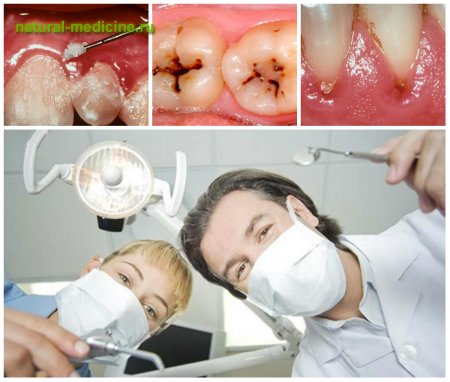
Remember about proper hygiene oral cavity and regularly go to the dentist to promptly identify diseases and treat them.
Dry mouth

Insufficient saliva production is called xerostomia. This condition causes dry mouth and insufficient quality of cleansing. Because of this, food particles remain in the mouth and begin to decompose, leading to an unpleasant odor.
Dry mouth is not a reason to seek medical attention. It may be due to various reasons, but each of them must be eliminated.
Smoking

Smoking is one of the most common reasons appearance of an unpleasant odor. Chemical substances, which are formed during the combustion of tobacco, are not completely eliminated with exhaled smoke, but remain in the oral cavity and are retained in respiratory tract.
Constant smoking causes the development of gum disease and complicates the situation. To combat this problem, you just need to stop smoking - other effective options does not exist.
Various diseases

On a note! Bad breath that appears for no apparent reason may indicate the development of various diseases.
People suffering from diabetes may develop ketoacidosis when there is a lack of glucose in the blood, in which a sweet, fruity odor emanates from the mouth.
Also, an unpleasant odor sometimes appears in people who have problems with eating behavior, namely bulimia or anorexia. In this case, the nasty smell is associated with impaired digestion, as well as regular vomiting, after which the remains of food along with gastric juice remain in the oral cavity and esophagus. At the same time, sometimes the breath even smells like feces.
Supporters of unbalanced diets can also boast of bad breath.
The smell of ammonia or fish from the breath often occurs in people with renal failure.
Treatment and prevention of bad breath
To solve the problem of bad breath, you need to identify the root cause. Go to the dentist and make sure that you do not suffer from gum or dental disease. Then visit a gastroenterologist to rule out problems with the intestines and stomach.

If the nasty smell is due to eating habits, remember to regularly brush your teeth, floss, chew gum, and use mouthwash.
Let's sum it up
Bad breath can occur due to various reasons, starting with insufficiently good hygiene and ending with serious diseases. If the smell has become chronic, you need to go to a gastroenterologist and dentist.
Bad breath in medical terminology is called “halitosis.” It's really medical problem, the roots of which are in ill health digestive organs or dental problems. In addition, bad breath can appear due to pneumonia, purulent sore throat or sinusitis. How to get rid of bad breath? What preventative and treatment measures help eliminate or reduce this symptom?

The causes of bad breath in adults and children can be divided into three groups: improper dental care, dental problems and the presence of internal inflammation. Let's describe them in more detail.

Insufficient oral care
Poor brushing of teeth contributes to the accumulation of microscopic food deposits in the spaces between teeth. These deposits become the basis for the development of various microorganisms. As a rule, anaerobic bacteria multiply and, as a result of their own vital activity, produce hydrogen sulfide. It smells like gas rotten eggs. With small amounts of hydrogen sulfide in the exhaled air, stale breath is felt.
Bad breath due to poor brushing of teeth worsens after a night's sleep. During rest, all processes in the body slow down. The speed of blood flow and the amount of saliva produced in the oral cavity decreases. Therefore, fewer bactericidal substances act in the mouth (they are contained in saliva and give it bactericidal properties).
Regular brushing of teeth at night prevents bacterial activity and bad breath in children and adults.
Dental diseases
Dental problems are the record holders among the causes of halitosis. Inflammation of the gums (gingivitis and periodontitis), caries, plaque and tartar, stomatitis and various suppurations in the oral cavity create a persistent unpleasant odor. It is felt especially strongly with stomatitis and purulent formations (dental fistula). The reason is the activity of pathogenic bacteria (staphylococcus, streptococcus, pneumococcus), which damage cells, release toxins, thereby causing inflammation and forming purulent processes.
You can get rid of halitosis only after a visit to the dentist and complete sanitation of the oral cavity (treatment of caries, gum inflammation and mandatory cleaning plaque and tartar).

ENT diseases of the nasopharynx
Diseases of the nasopharynx are often caused by the same pathogenic bacteria as dental inflammation. These are the ubiquitous staphylococcus, as well as pneumococcal and streptococcal microorganisms. As a result of their vital activity, toxins are released and pus is formed, which is the source of a putrid odor. Therefore almost everything chronic diseases nasopharynx (tonsillitis, sinusitis, tonsillitis) are accompanied by halitosis. In the acute stage, the secretion of pus intensifies, and accordingly the smell from the oral cavity becomes sharper and more noticeable.
Treatment of such halitosis is impossible without the health of the nasopharyngeal organs. Therefore, first - a visit to the ENT specialist, and only after - all kinds of mouth rinses.
Bad breath when coughing and bronchial infections
If the cough is a consequence of an inflammatory process in the lungs or bronchi, it may also be accompanied by an unpleasant odor from the open mouth.
When you cough, the smell from your mouth increases as phlegm is released into the oral cavity. It is sputum that is the source of the stench, as it contains pus and toxins.
Such halitosis goes away on its own after bronchitis or pulmonary inflammation is cured.
Digestive diseases and their role in the formation of halitosis
Diseases of the digestive organs are almost always accompanied by an unpleasant, sometimes very strong, putrid odor. This “aroma” rises up the esophagus when belching or incomplete closure of the food sphincter (the valve at the entrance to the stomach). By the nature of halitosis, it is possible to diagnose what kind of disease is plaguing a person.
Sour breath is often a symptom of gastritis or peptic ulcer stomach, duodenum. In addition, the feeling of acid appears when the pancreas is inflamed - pancreatitis.
A fishy smell or similar to rotten eggs, spoiled meat (in a word, the “aroma” of rotten protein food or hydrogen sulfide) is a symptom of a diseased liver.
A putrid odor appears when the food sphincter in front of the stomach does not close and when belching.
In addition, with various diseases of the gastrointestinal tract, the tongue is completely or partially covered with a white (gray) coating. Plaque also forms on the surface of the teeth and, as it accumulates, turns into tartar. Which is an additional source of halitosis and an unpleasant impression.
Why does bad breath accompany diseases of any organs of the gastrointestinal tract, since the intestines, liver and pancreas are removed from the oral cavity and do not have direct communication with it?
Disturbances in the functioning of any organ of the gastrointestinal tract are accompanied by changes in the microflora of the oral cavity. Normally, it should have a certain acidity, viscosity, and bactericidal composition. With intestinal dysbiosis, oral dysbiosis is formed. In the composition of saliva, the number of friendly bacteria decreases and the composition of unfriendly pathological microorganisms increases. As a result of excessive proliferation of coccus bacilli, toxic substances accumulate in the mouth and persistent halitosis is formed.
If your child has bad breath
Bad breath in a child is almost always a sign of an inflammatory process or illness. It could be a simple runny nose, stomatitis or sore throat, or indigestion, or more serious illness- diabetes.
In any case, do not ignore this unpleasant manifestation. Have your child examined by a doctor and find out the cause.
It is important to know: often the cause of an unpleasant “aroma” from the mouth of children is common worms. Having settled in the intestines, they secrete products of their own vital activity (toxins, essentially poisons) into the intestinal cavity. And this poisons digestion, causes a number of diseases, and forms persistent halitosis.

Smells like acetone: diabetes or hunger
The smell of acetone from the mouth of an adult can be a symptom of diabetes (or a signal of a lack of insulin and the need for an emergency injection of the hormone). The presence of acetone in exhaled air and urine raises the question of insufficient absorption of carbohydrates. The presence of acetone in your breath makes you wary and consult a doctor for examination..
Want something interesting?
Especially if there are additional symptoms:
- frequent urge to go to the toilet (“in a small way”);
- dry mouth;
- constant weakness.
The listed signs indicate an excess of sugar in the blood and a lack of it in the cells of internal organs. Timely diagnosis, nutrition correction and correct treatment will help stop the disease.
Why does bad breath appear when diabetes mellitus? What is the mechanism of its formation? The essence of the disease is the failure of glucose to be absorbed by cells. It occurs due to the lack of a hormone that ensures the transport of sugar molecules through the walls of blood vessels.
Thus, the body is left without energy nutrition and tries to get the missing energy from fat cells. Chemical reaction The breakdown of fats to form carbohydrates is accompanied by the release of acetone. With a prolonged lack of glucose, the presence of acetone becomes very noticeable. It smells not only from the mouth, but also from skin a person, his feces, urine.
In addition, the aroma of acetone can appear during fasting, strict diets and specific taste preferences, when a person’s food menu consists mainly of proteins with a small inclusion of carbohydrates. In this case, processes similar to diabetic ones occur in the body. With a lack of glucose (carbohydrates), the body begins to break down fats, the product of incomplete breakdown of which is acetone. The smell of acetone on a child’s breath is a sign not only of diabetes, but also of malnutrition.
Whatever the reasons for the smell of acetone from the mouth of a child or an adult, you should urgently consult a doctor to examine and find out the cause, determine internal disease, do not start the process that has started.
Smells like ammonia: you have kidney problems
Acetone and ammonia are substances of the 4th toxicity group (low toxicity in small concentrations). Ammonia is a simple compound of nitrogen and hydrogen ( chemical formula NH3), and acetone is a complex compound of carbon with hydrogen (chemical formula CH3-C(O)-CH3).
Ammonia smells like urine and ammonia, acetone - evaporation of vinegar and (remotely) apples.
The smell of ammonia accompanies kidney disease, as well as dehydration processes (they occur when food poisoning). Kidneys are one of the filters human body. When filtered substances (nitrogenous waste) accumulate, they become a source of ammonia in the urine and breath of a sick person.
Why does an alcoholic stink?
Taking toxic substances slowly destroys the entire body. Alcohol, drugs, and tobacco supply toxins to cells and disrupt their vital functions. The microflora of the oral cavity is disrupted, saliva production decreases, and the oral mucosa dries out. Chronic consumption of toxic components (occasional drinking or daily smoking) creates a repulsive stench from a person’s skin and from his mouth.
The odor may be due to certain foods and taste preferences. A number of products are distinguished by a high content of phytoncides (volatile bactericidal substances). There are a lot of them in onions, garlic, hot pepper, hell. These products themselves are very useful: they have bactericidal properties and help fight colds, worms, and internal inflammation. However, eating onions and garlic leaves a sharp, noticeable odor.

How to get rid of the smell of onion from your mouth and how to remove the smell of garlic from your mouth after eating? Let's list a few possible ways provide yourself with natural bactericidal agents and not suffer from halitosis afterwards:
- Thorough brushing of the teeth and tongue helps remove bad breath (the plaque on the root and upper part of the tongue contains many bacteria and also retains phytoncides of onion and garlic). After cleaning, rinse your mouth with a solution of lemon juice. Lemon pulp contains volatile phytoncides, and therefore helps eliminate halitosis.
- You can remove the smell of onions from your mouth if you eat them with the first or second course. Do the same with garlic - press it through a garlic press into soup or borscht.
- Cut the onion or garlic clove into small pieces and swallow without chewing, wash down with water.
- To get rid of the smell of garlic from your mouth, you need to chew cardamom seeds, parsley, a slice of lemon or some raw nuts (walnuts, almonds, hazel) after eating garlic.
- You can quickly remove the smell of garlic from your mouth by using aromatic chewing gum with mint or menthol.
Unbalanced eating habits
The second unfavorable factor of halitosis is unbalanced diet. Too much consumption of protein products creates the basis for the proliferation of pathological bacteria. In this case, the remains of animal protein between the teeth become a nutrient substrate for the production of hydrogen sulfide. This is why halitosis, in the absence of internal inflammation, never develops in vegetarians and raw foodists.
In addition to animal protein, the acidity of the oral cavity is disturbed by following products: coffee, carbonated drinks, alcohol. The latter composition of various “drinks” greatly dries out the mucous membrane, reducing its ability to protect the oral cavity from infection. The opportunistic staphylococcus, which is always available, begins to multiply on the mucous membrane, forming inflammation and halitosis.
What to do if the bad breath is so strong that people around you turn away? How to remove bad breath in the presence of chronic diseases and inflammation?
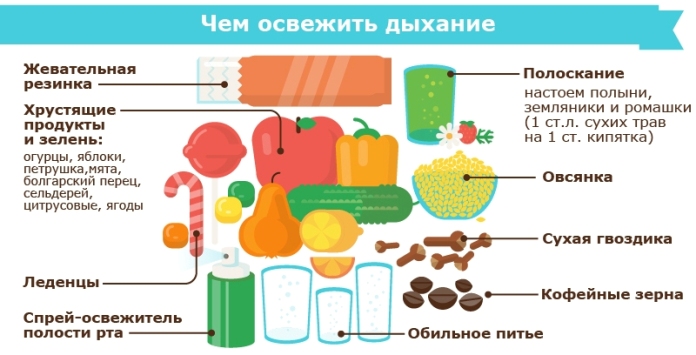
Treatment of bad breath
Treatment of bad breath is carried out in two directions: symptomatic and systemic. Systemic treatment methods include those measures that affect the cause. That is, this is the treatment of a diseased ENT organ or digestive system, sanitation of the oral cavity, cleaning of teeth from plaque and tartar. The listed methods affect the cause of the disease and, in the process, remove the symptoms of its manifestation - an unpleasant or pungent “aroma”. They help eliminate bad breath for a long time and restore your own health.
Symptomatic treatment is counteracting the symptom without treating the underlying disease. This approach is less effective; it gives quick results for a short time. Examples of such “treatments” are flavorings and chewing gum, which interrupt the putrid “spirit” with their own strong aroma.
Examples of effective treatment
Treatment of bad breath from the stomach is effective only when restoring the intestinal flora and acidity of the oral cavity. This requires a drinking regime (up to 2 liters of liquid per day), a diet (food healthy eating, without fast foods and food preservatives), probiotics (preparations for restoring beneficial friendly flora).
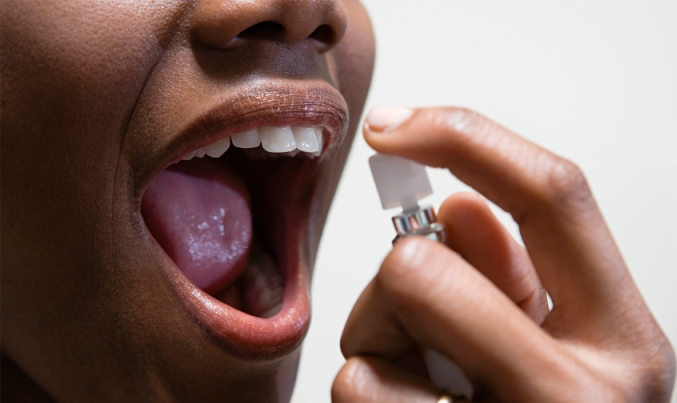
An effective remedy for bad breath due to dental diseases is antiseptic rinses. They are made by the following means:
- silver water;
- infusion of chamomile, sage, pine needles, juniper berries;
- alcohol propolis solution;
- weak solution of manganese;
- resorption of adsorbents (charcoal) under the tongue.
However, if the source of infection and halitosis is located in periodontal “pockets,” then it is not possible to get rid of the smell for a long time. You will have to rinse your mouth again and again.
Antiseptic applications to places help get rid of bad breath dental inflammation. They are made with cut aloe leaves (the pulp is applied to inflamed areas or carious cavities). They not only eliminate the smell, but also counteract inflammation, treat and disinfect the oral cavity.
Halitosis is a medical problem that most often requires a systematic approach and treatment of the entire organism as a whole.


